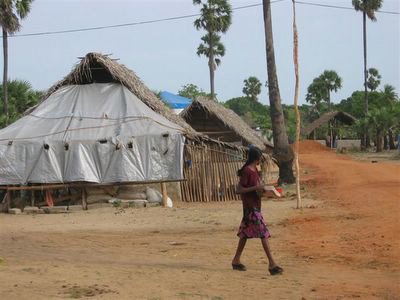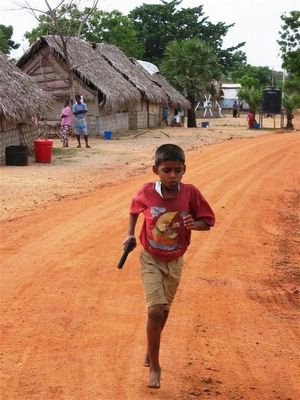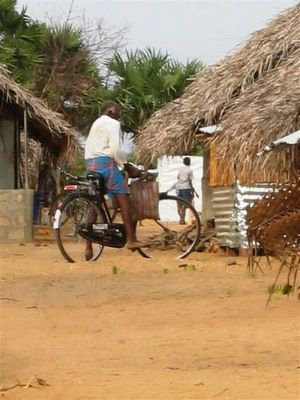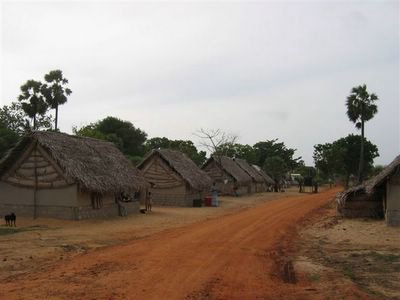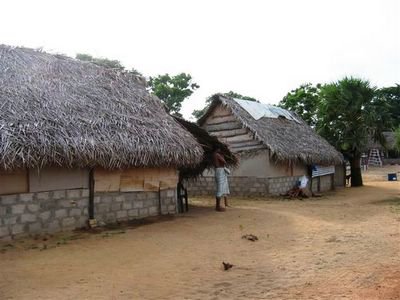
There are two hundred families-nine hundred and fifteen families living in the transitional shelters in Manatkudiyiruppu-Mullaithivu District. Although the basic facilities are available here, it's very difficult to live in rainy season. These trasitional shelters were built by the Tamils Rehabilitation Organisation.
This is a fishing village, and 90% of the families depend on fishing industry for their livelihoods. About five hunderd villagers were washed away in the Tsunami. The whole village went under water.All the properties were lost to the sea. The villagers say that, they worship the sea like God. They regret, what has happened to their lives. They also say that, they must have committed some sinful acts in the past, and the sea or the God reacted to it in Tsunami form.

